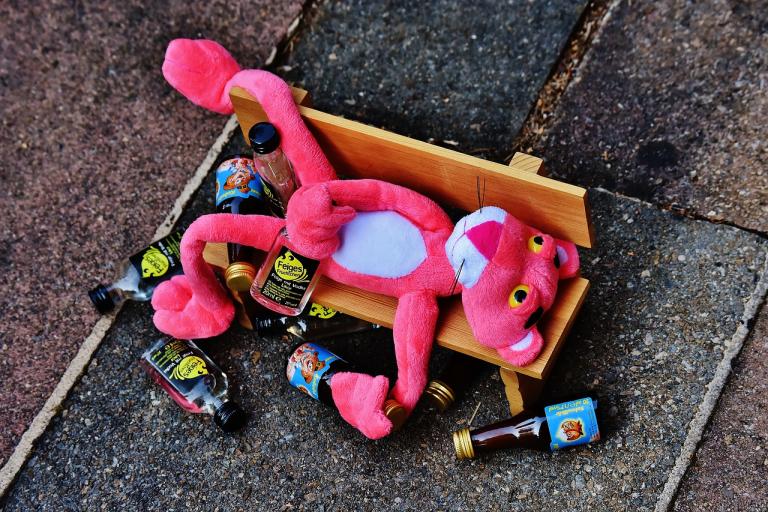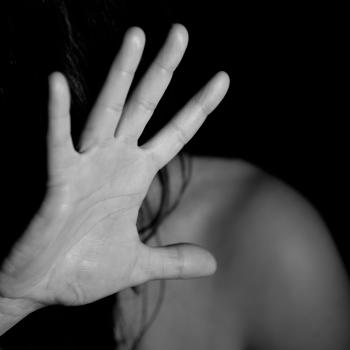Eve Tushnet’s first novel, Amends, is about a group of quirky alcoholics who get recruited to go through rehab on reality TV. It’s a great premise for a novel, and for most of the book it’s executed beautifully.
There’s clearly a lot of research into addictions treatment underwriting the text, but it never feels like it’s being handled in a preachy or paint-by-numbers way. Tushnet has clearly thought deeply about her subject matter – and anyone who has read Gay and Catholic will be aware that some of that thinking comes from her own experience – but her decision to pair the seriousness of alcoholism with the demented demands of the entertainment industry gives the material a sense of freshness and absurdity that prevents it from reading like a page torn from AA’s Big Book.
I found that for the first few chapters barely a page went by without eliciting laughter. It’s not that it’s a comedy, but rather that Tushnet’s uniquely witty descriptions of the foibles of fallen humanity are on more or less continuous display.
There is, I think, something deeply true about seeing humanity’s brokenness in this way. Too often, I think, we’re inclined to over-dramatize the ordinary suffering and stupidity that characterizes human life – but Tushnet is able to show that it is funny without ever stooping to ridicule. Instead of saying “Look at how stupid these people are,” she invites us to see in her characters’ foolishness a reflection of our own frequently ridiculous selves.
It’s a thought-provoking novel, frequently heavy, but it doesn’t descend into philosophical navel-gazing. The characters are allowed to have their own thoughts and ideas, and the way that their beliefs interact with their life-choices and circumstances is portrayed with a combination of wry satire and genuine sympathy. Tushnet’s faith is present in the book, but there are no heavy-handed conversions or moments of cheap grace. Her characters work out their recovery with Kierkegaardian fear and trembling.
This presents us with, I think, one of the paradoxical strengths and weaknesses of the book. To a certain extent, the novel as a genre primes us to expect a more sophisticated and literary version of the same type of character arc that we see in its tawdry, pared-down form on reality TV. People are ultimately either villains or heroes. They either rise or fall. They are on a trajectory that may involve occasional lapses (if they are good) or occasional changes of heart (if they are bad), but we know that in the end we will be confronted with a clear judgment: there will be either tragedy or redemption. Ideally, not only will the plots resolve themselves by the end, but they will all come together in one climactic final episode full of crackling emotion and shocking but satisfying revelations.
Amends does not provide us with that kind of comfortable formula. In a sense, if it did it would be a betrayal of one of the novel’s broader aims – which is to show that human life is messy and that recovery is not something that can happen over the course of a season on cable TV. By pairing the reality TV conceit with the rehab setting, Tushnet is to a certain extent showing one of the failings of our culture’s desire for miracle quick-fix solutions to problems like alcoholism: short-term interventions may have a positive impact, but they don’t “work.” There are no outcomes. Only lives that continue, people that go on fumbling towards happiness as well as they can.
This is a truth worth telling, and I think it’s worth portraying in literature, but it does rob the novel of some of its momentum in the final third. After the show wraps, we see how the characters go forward in their lives, but the artificial sense of unifying order provided by the formal constraints of reality television are gone. Meaning that the storylines become rather meandering as they strive towards some sort of resolution.
Tushnet’s style and sensitivity, however, carried me through to the end. It was a novel that left me thinking deeply about the human condition, about the strange ways in which we are both free and yet addicted to so many different forms of self-destruction, loved and yet struggling to receive that love, beautiful and yet absurd.
Amends is a fine first novel, and definitely worth the read.
Image credit: pixabay
Stay in touch! Like Catholic Authenticity on Facebook:













